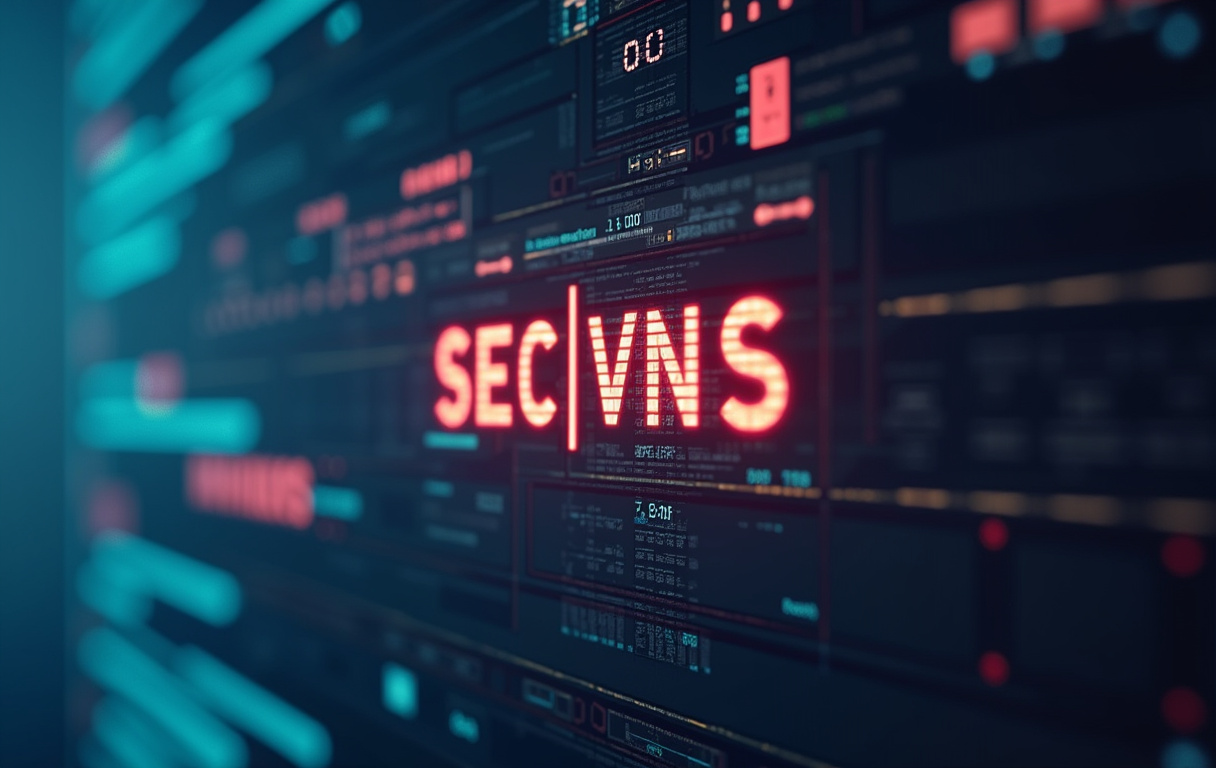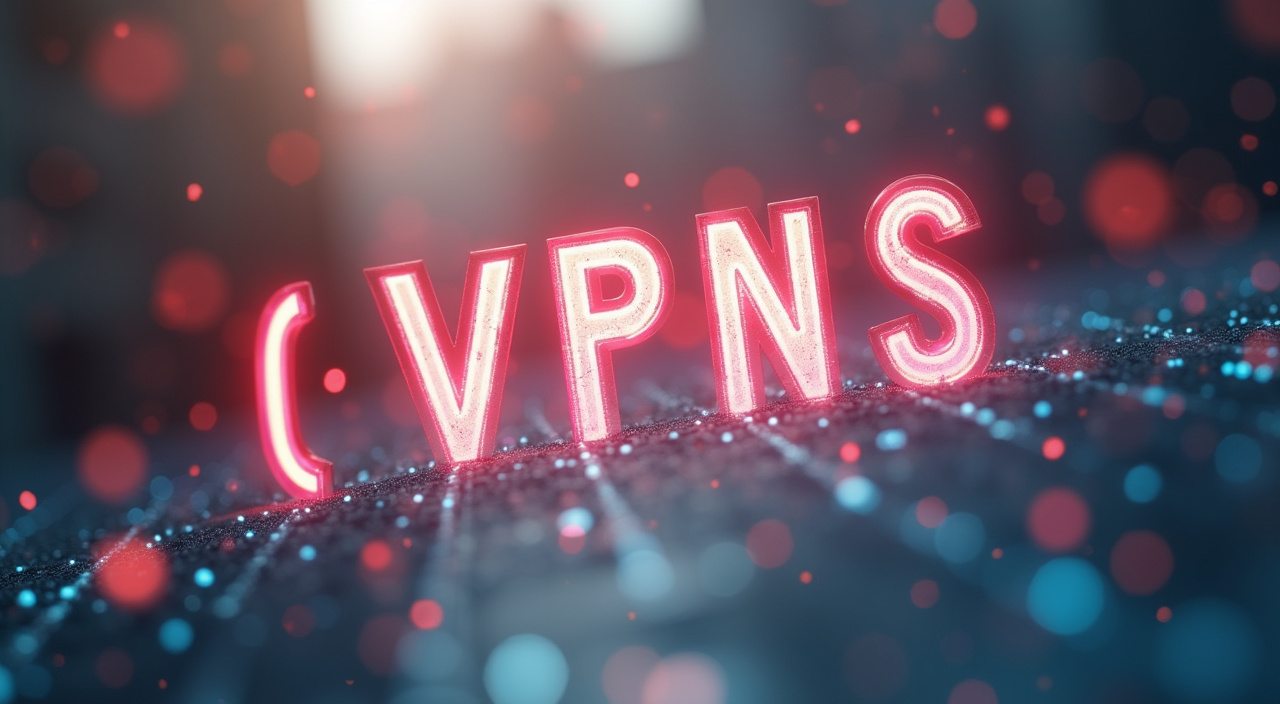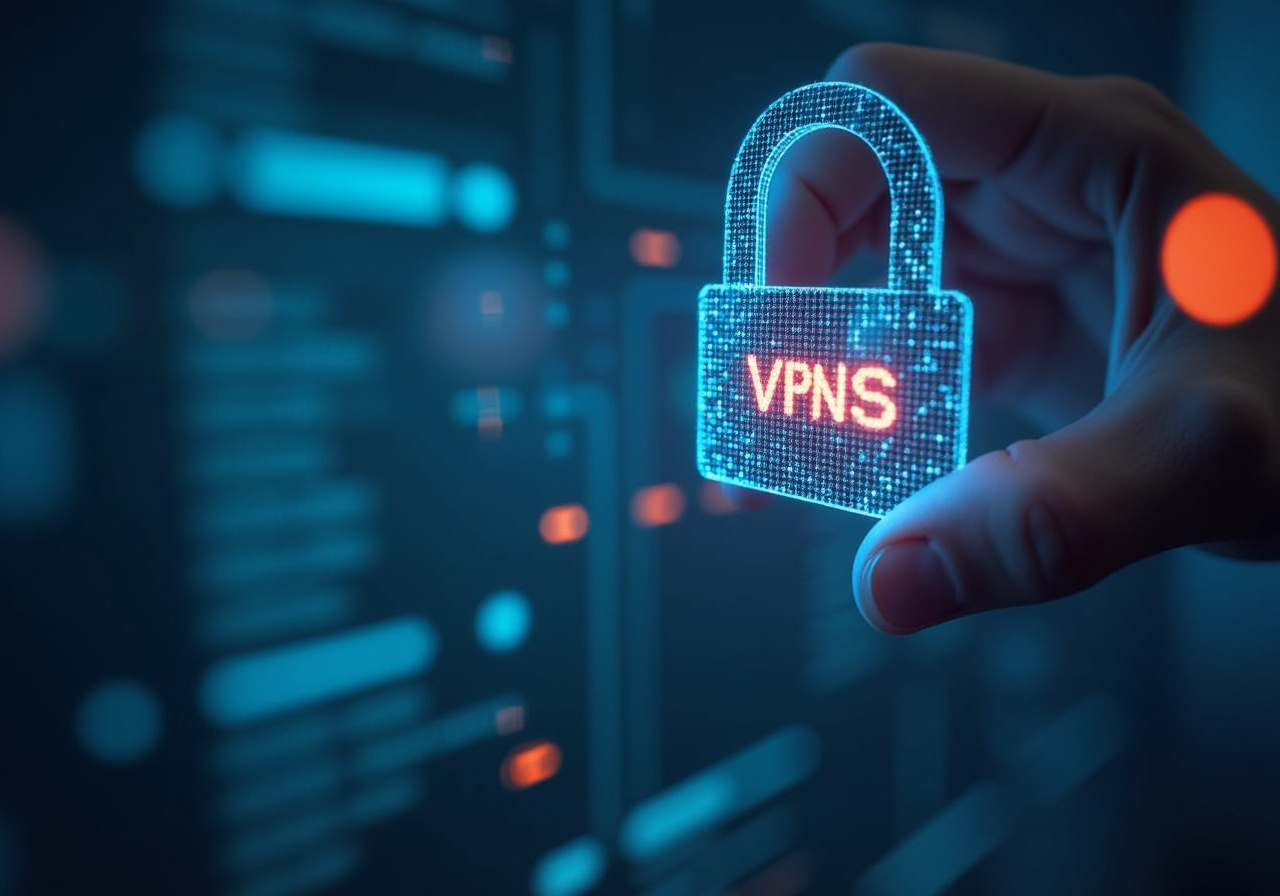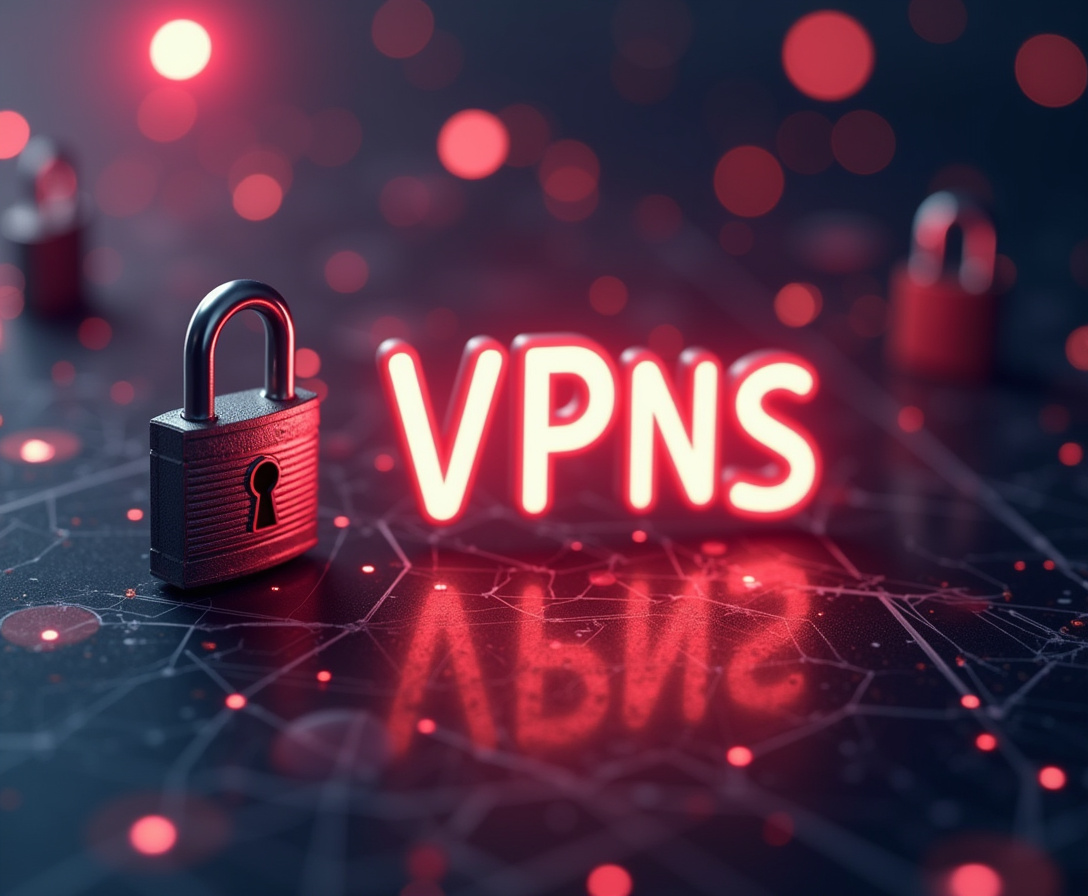VPN Security: Top Picks for 2025

Table of Contents
Introduction to VPN Security in 2025
In an increasingly interconnected world, the concept of online privacy has rapidly evolved from a mere preference to an absolute necessity. The digital landscape, while offering unprecedented access to information, communication, and opportunities, also presents a formidable array of potential threats. From the ever-looming specter of sophisticated cyberattacks and intrusive government surveillance to the more mundane, yet still significant, risks associated with unsecured public Wi-Fi networks, the need for robust Virtual Private Network (VPN) security has become paramount.
In the year 2025, the safeguarding of personal data is no longer a luxury afforded only to the technically savvy; it is a fundamental right that demands proactive defense strategies. This comprehensive and meticulously researched guide delves deep into the intricate world of VPN security, aiming to dissect the key features, protocols, and critical considerations that truly define a secure VPN service. Our primary objective is to navigate the often-confusing and technically dense landscape of VPN options, empowering you, the reader, to make informed decisions about your online security and effectively safeguard your digital life.
We will systematically cover essential aspects such as the vital encryption standards employed by various VPNs, the importance of carefully selecting the correct VPN protocol for your needs, the implications of varying logging policies implemented by service providers, the jurisdictional factors that can impact your privacy, and the crucial role of independent audits in verifying claims made by VPN vendors. This guide will also rigorously explore how VPNs, when properly configured and utilized, can provide effective VPN protection against a wide range of online threats, and what specific qualities truly distinguish the top contenders in the increasingly competitive realm of secure VPNs. Furthermore, this in-depth exploration will place a particular emphasis on the core elements that constitute secure VPNs in the current digital environment and what users should realistically expect from these services in the year 2025 and beyond.
Understanding not only how different VPN protocols function at a technical level, but also how to proactively protect yourself against emerging risks in 2025 is absolutely pertinent in today's complex online ecosystem. This meticulously crafted examination seeks to equip you with the knowledge and understanding necessary to make informed decisions about your VPN usage, thereby significantly enhancing your overall online safety and security. We will dedicate significant attention to understanding which specific protocols add which added layers of VPN security, focusing on the types of threats that each protocol is specifically designed to mitigate.
Ultimately, this guide will serve as a comprehensive resource, enabling you to discover and confidently deploy the best secure VPNs of 2025. By empowering you with the critical knowledge necessary to protect your digital identity, you can confidently navigate the online world with greater peace of mind, knowing that your sensitive information is shielded from prying eyes and malicious actors. The information within can help you decide which VPN to purchase for VPN 2025, so be sure to read fully for all the helpful tips and references.
Key Considerations for Choosing a VPN
The bedrock of any truly secure VPN service lies unequivocally in its encryption capabilities. Encryption, at its core, is the fundamental process of transforming readable data into an unreadable, scrambled code, effectively rendering it unintelligible to any unauthorized third parties who may attempt to intercept or gain access to it. The sheer strength and sophistication of this encryption process directly correlates with the overall difficulty involved in successfully cracking the code and deciphering the original data.
In the year 2025, the undisputed gold standard within the VPN industry for robust and reliable encryption remains the Advanced Encryption Standard, more commonly known as AES, and specifically the implementation utilizing a 256-bit key. This level of encryption is frequently referred to as AES-256. Due to its immensely complex mathematical underpinnings and the sheer computational power required to break it, AES-256 is universally considered to be virtually unbreakable with current computing capabilities, effectively solidifying its position as the cornerstone of any strong and trustworthy VPN security system.
Beyond simply specifying the particular encryption algorithm employed, the specific protocol that is utilized to establish the actual VPN connection between your device and the VPN server also plays a critical role in determining the overall security and stability of the connection. There exists a diverse array of VPN protocols available in the marketplace, each with its own inherent strengths, weaknesses, and specific use cases. OpenVPN, a highly configurable and completely open-source protocol, is consistently regarded as one of the most secure and reliable options available.
Its open-source nature is a significant advantage, as it allows for continuous scrutiny, review, and improvement by a vast community of security experts and developers. This collaborative approach ensures that any potential vulnerabilities are identified and addressed promptly, minimizing the risk of exploitation. Other popular and widely used protocols include WireGuard, which has gained considerable traction in recent years due to its impressive balance of both speed and security, and IKEv2/IPsec, which is well-known for its inherent stability and its ability to quickly and seamlessly reconnect after interruptions in the network connection.
However, it is critically important to note that certain older protocols, such as PPTP (Point-to-Point Tunneling Protocol) and L2TP/IPsec, should be actively avoided whenever possible, as they have been shown to possess known security vulnerabilities and are generally considered to be outdated and less secure compared to more modern alternatives. A thorough understanding of the subtle differences between these various protocols is absolutely essential in order to effectively secure VPNs and ultimately make a well-informed choice that aligns with your specific security requirements and risk tolerance. The optimal approach to achieving comprehensive VPN protection involves carefully selecting a VPN service provider that explicitly prioritizes strong encryption methodologies and consistently utilizes a reputable and battle-tested protocol such as OpenVPN or WireGuard.
While some VPN protocols may boast a greater degree of transparency due to their open-source nature, certain implementations have been found to exhibit unforeseen flaws that could potentially compromise your VPN security. Therefore, thorough research and due diligence are crucial to mitigate these risks. The primary objective of VPN usage in 2025 should be a deep and comprehensive understanding of the differentiating factors between the various protocols that your chosen server supports, alongside proactive measures to minimize your personal level of risk should any vulnerabilities be discovered or exploited.
Provider Selection and VPN Configuration
Another paramount factor that demands meticulous consideration when assessing the security posture of a VPN service is the provider's explicit logging policy. A truly strict and verifiable no-logs policy signifies that the VPN provider, under no circumstances, collects or stores any data whatsoever pertaining to your online activities. This encompasses your complete browsing history, your originating IP address, detailed connection timestamps, and the total amount of data bandwidth that you have consumed during your sessions.
This commitment to zero-logging is absolutely crucial for safeguarding user privacy and ensuring that your sensitive data cannot be compromised, even in the event that the VPN server is physically seized by law enforcement authorities or subjected to a legally binding subpoena. However, it is of the utmost importance to thoroughly scrutinize the fine print of the VPN provider's privacy policy, as some providers may make claims of adhering to a no-logs policy while simultaneously engaging in the collection of certain limited types of data. To gain a higher degree of assurance, actively seek out VPN services that have undergone independent audits conducted by reputable and well-established third-party security firms.
These independent audits provide an unbiased and objective assessment of the VPN's logging practices, providing much greater confidence in the provider's claims regarding its commitment to user privacy. A clearly articulated, concise, and transparent privacy policy is also a hallmark of a trustworthy VPN provider, indicating that the company is being upfront and honest about its data handling practices. Conversely, a privacy policy that is characterized by vagueness, ambiguity, or the use of overly technical jargon should immediately raise red flags and warrant further investigation.
The geographical jurisdiction in which the VPN provider is legally based also exerts a significant influence on its capacity to effectively protect your privacy. VPN providers that are based in countries with robust and comprehensive data protection laws and no mandatory data retention requirements are generally considered to be more trustworthy and less susceptible to external pressures. It is prudent to avoid VPN providers that are headquartered in countries that are members of intelligence-sharing alliances such as the "5 Eyes," "9 Eyes," or "14 Eyes," as these providers may be subjected to government surveillance and compelled to share user data with other member nations.
A truly secure VPN's jurisdiction should afford it the operational independence necessary to resist unwarranted government interference and uphold its commitment to user privacy. Ensure that the VPN service adheres to strict no-logging policies and is strategically located in a privacy-respecting jurisdiction to maximize your VPN protection. In the dynamic landscape of 2025, it is imperative to prioritize VPNs that demonstrably value your personal safety and security by maintaining transparent and easily understandable policies.
In 2025 the goal is to find VPNs that can provide security, without storing or selling important user data.
Logging, Monitoring, and Security Audits
Beyond the fundamental elements of robust encryption, carefully chosen protocols, and stringent no-logging policies, a multitude of supplementary features can significantly contribute to a more fortified VPN security posture. Among these, a kill switch stands out as a particularly crucial safety net. A kill switch is designed to automatically sever your internet connection instantaneously in the event that the VPN connection unexpectedly drops or becomes unstable.
This immediate disconnection prevents your true IP address from being exposed to the internet, thereby mitigating the risk of data leaks and maintaining your anonymity. DNS leak protection is another essential feature, working to prevent your Domain Name System (DNS) requests from inadvertently being sent to your Internet Service Provider's (ISP) DNS servers. Such leaks could potentially reveal your browsing activity to your ISP, undermining the very purpose of using a VPN.
Similarly, IP leak protection mechanisms are implemented to ensure that your real IP address is not leaked through other types of vulnerabilities, such as WebRTC leaks, which can occur in certain web browsers. Many secure VPN providers also offer a range of advanced features that cater to users with heightened security concerns. Double VPN, for instance, is a sophisticated technique that routes your internet traffic through two separate VPN servers in different geographical locations, providing an additional layer of encryption and anonymity.
This makes it significantly more difficult for anyone to trace your online activity back to your original IP address. Obfuscation, also known as stealth mode, is another valuable feature that disguises your VPN traffic to make it appear as normal internet traffic. This is particularly useful in countries with strict internet censorship laws, where VPN usage may be blocked or restricted.
By obfuscating your traffic, you can bypass these restrictions and access the open internet. The availability of a wide array of server locations is also an important consideration. A diverse server network allows you to connect to a server that is geographically closer to your actual location, which can improve connection speeds and reduce latency.
Additionally, it enables you to connect to servers in different countries to access geo-restricted content, such as streaming services or websites that are not available in your region. When evaluating VPN options, it's crucial to carefully consider the range of server locations offered and ensure that they meet your specific needs. Look for VPN options that have a wide array of physical servers in all continents to mitigate latency slowdown.
VPN 2025 will be affected by how close you are to a vpn server, so find one as close to your location as possible. Ensure that your location to the VPN server is secured physically.
The Future of VPNs and Subscription Services
In the ever-evolving landscape of cybersecurity threats, staying informed and proactive is paramount to maintaining robust VPN security. It's essential to recognize that no single VPN solution offers absolute, impenetrable protection. The effectiveness of any VPN ultimately depends on a combination of factors, including the specific security threats you face, your individual usage patterns, and the overall security practices of the VPN provider.
Regularly updating your VPN software is crucial, as updates often include security patches that address newly discovered vulnerabilities. Keeping your operating system and other software up to date is also essential, as outdated software can create security holes that can be exploited by attackers. Implementing strong passwords and practicing good password hygiene is another critical step in securing your online accounts.
Avoid using the same password for multiple accounts, and consider using a password manager to generate and store complex passwords securely. Be wary of phishing scams and other social engineering attacks, which can be used to trick you into revealing your login credentials or other sensitive information. Always verify the legitimacy of any email or website before entering your information, and be cautious about clicking on links from unknown sources.
Understanding your own threat model is also important. Consider what types of threats you are most concerned about, such as government surveillance, cybercrime, or data leaks. This will help you choose a VPN with the features and security measures that are most relevant to your needs.
Regularly reviewing your VPN's settings and privacy policy is also a good practice. Make sure you understand how your VPN is configured and what data it collects. If you have any concerns, contact the VPN provider's customer support for clarification.
Finally, remember that a VPN is just one piece of the puzzle when it comes to online security. It's important to adopt a holistic approach to security, including using strong passwords, being wary of phishing scams, keeping your software up to date, and practicing safe browsing habits. By taking these steps, you can significantly reduce your risk of becoming a victim of cybercrime and protect your online privacy.
It is also pertinent to mention the rise of mobile VPN usage in VPN 2025, and how mobile VPNs can extend your protection. It is also important to understand if your VPN supports TOR (The Onion Router). Also ensure that your VPN supports the encryption you expect it to.
It is important to stay on top of potential VPN changes in the market to ensure you have the best VPN protection in 2025, as competitors will always try to one-up each other in functionality and features. If you implement these habits, you are sure to have a safe experience in 2025.
Stay Updated
Get the latest VPN news, tips, and exclusive deals to your inbox.




